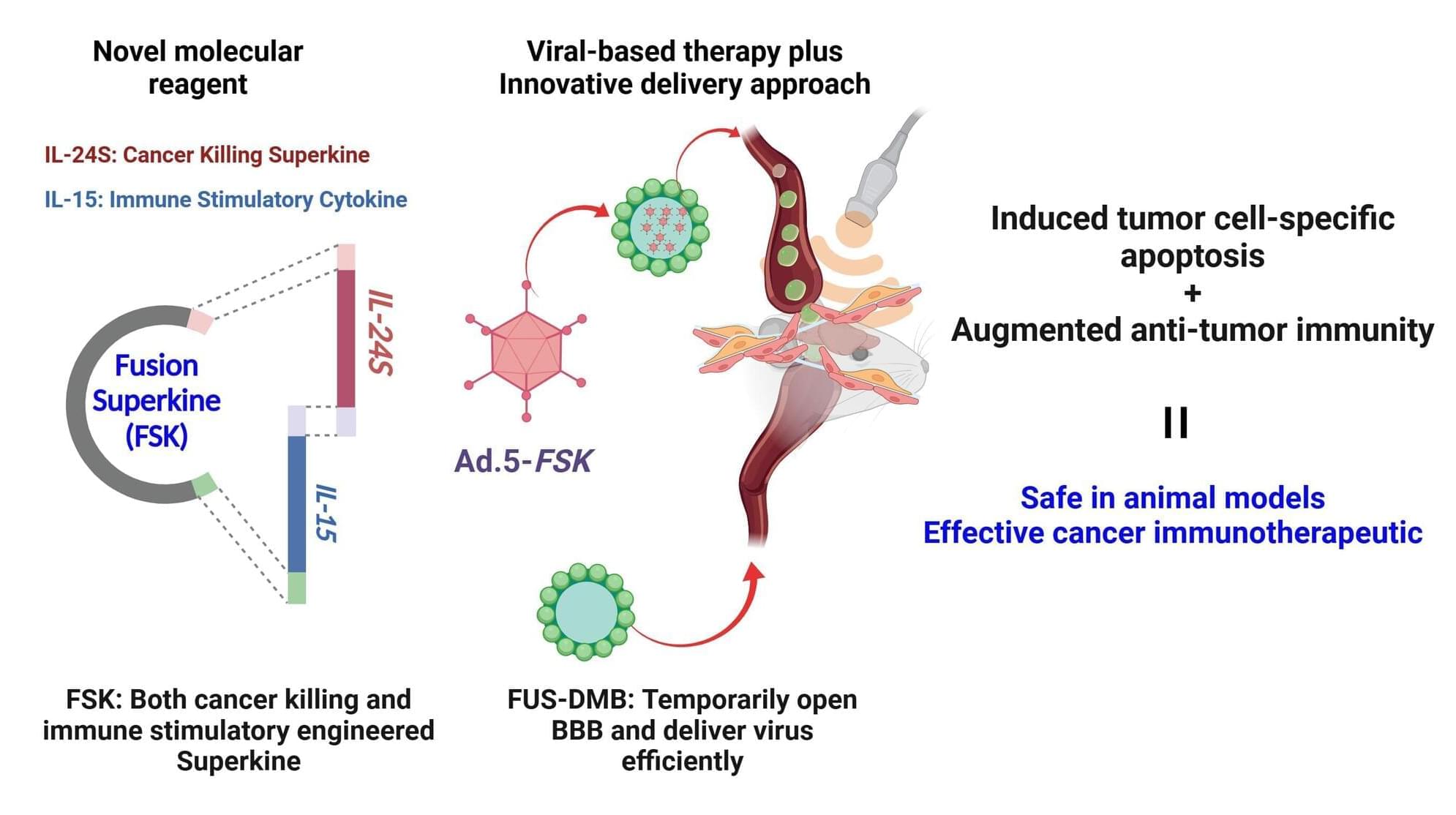Researchers at VCU Massey Comprehensive Cancer Center and the VCU Institute of Molecular Medicine (VIMM) have discovered a new and potentially revolutionary way to treat glioblastoma (GBM), the most aggressive type of brain cancer, which currently has no curative treatment options.
In a study led by Paul B. Fisher, MPh, Ph.D., FNAI, and Swadesh K. Das, Ph.D., recently published in the Journal for ImmunoTherapy of Cancer, researchers created a new molecule that demonstrates the ability to introduce a combination of treatment outcomes—direct toxicity and immunotoxicity—to kill the tumor while exploiting immunotherapy to potentially prevent the recurrence of GBM. The new molecule, a fusion superkine (FSK), contains dual-acting therapeutic cytokines in a single molecule.
“This is the tip of the iceberg,” said Dr. Fisher, the Thelma Newmeyer Corman Endowed Chair in Cancer Research at Massey, director of the VIMM and professor in the Department of Cellular, Molecular and Genetic Medicine. “We’re optimistic that our first trial in brain cancer, planned for 2026, will show that the IL-24 gene and these therapeutic viruses are effective and safe. And [the FSK] will be the one knocking it out of the ballpark.
